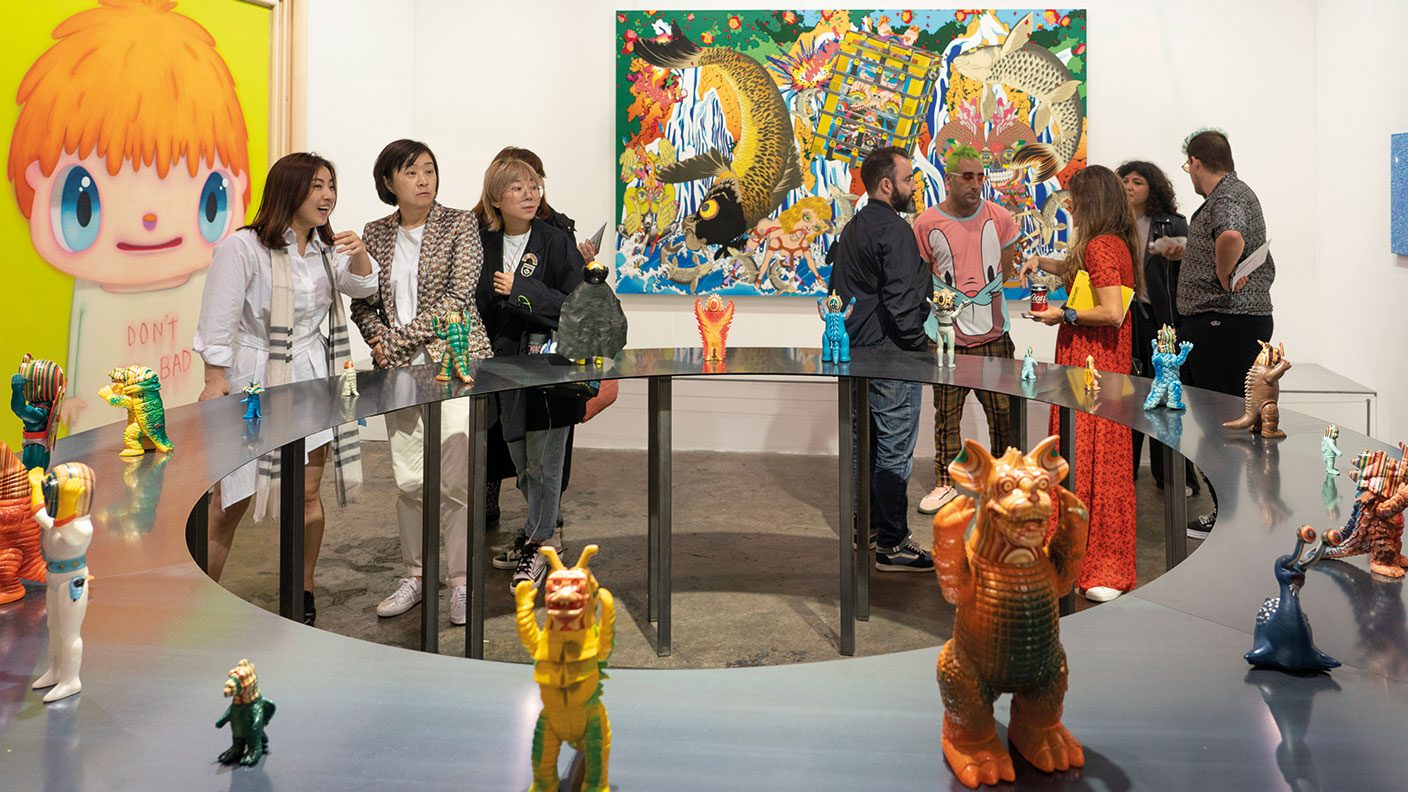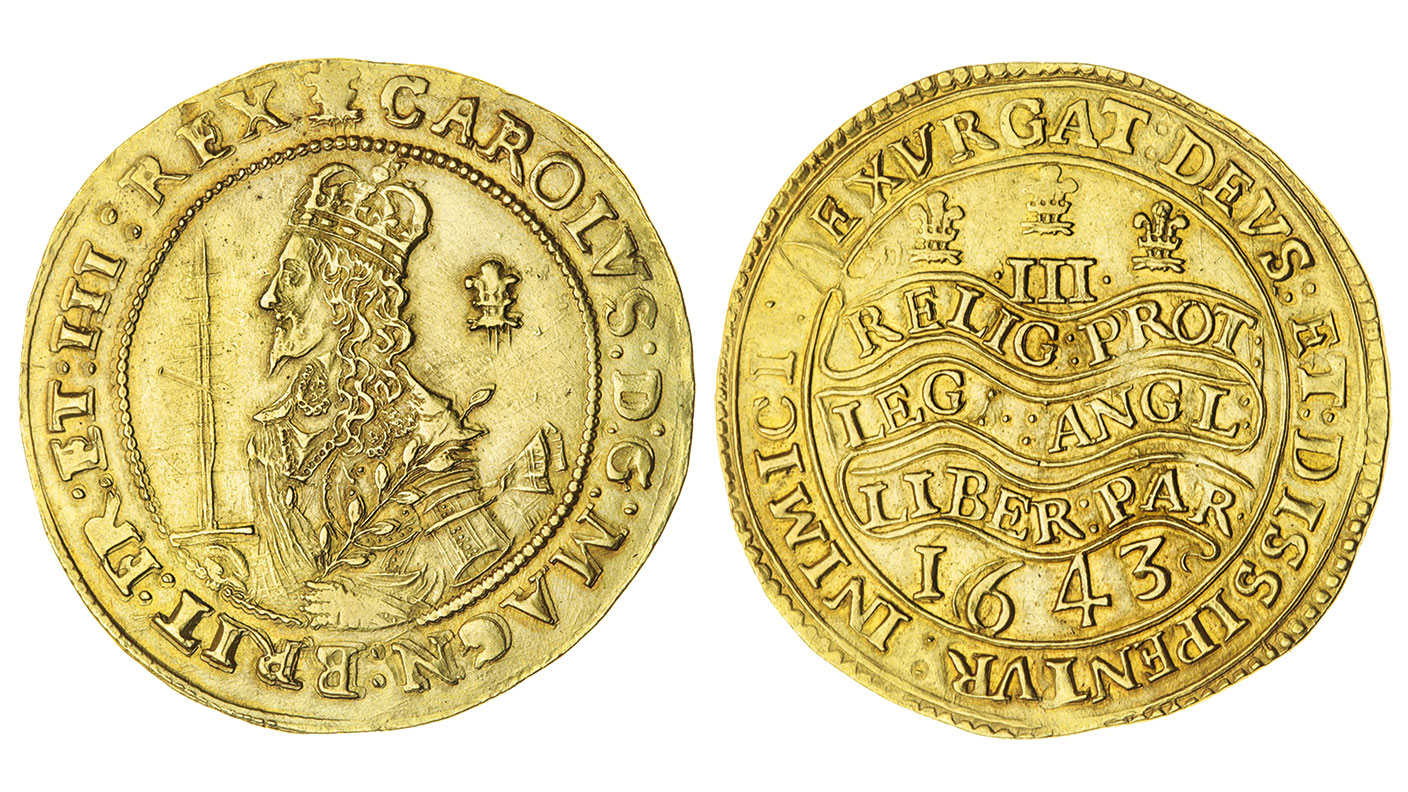How coronavirus is affecting the art market
The extraordinary boom in art fairs has suddenly fizzled out.


Get the latest financial news, insights and expert analysis from our award-winning MoneyWeek team, to help you understand what really matters when it comes to your finances.
You are now subscribed
Your newsletter sign-up was successful
Want to add more newsletters?

Twice daily
MoneyWeek
Get the latest financial news, insights and expert analysis from our award-winning MoneyWeek team, to help you understand what really matters when it comes to your finances.

Four times a week
Look After My Bills
Sign up to our free money-saving newsletter, filled with the latest news and expert advice to help you find the best tips and deals for managing your bills. Start saving today!
David Hockney, creator of Britain’s most expensive artwork by a living artist, is in lockdown. But he isn’t letting it get to him. From Normandy, where he is staying, the resourceful 82-year-old whipped out an iPad and “painted” a picture of bright yellow daffodils. He called it Do remember they can’t cancel the spring. Sadly, Hockney’s latest two exhibitions in London – at the National Portrait Gallery and the Annely Juda Fine Art gallery – have not been able to escape the spread of the coronavirus. Both have been closed, as have galleries, museums and art fairs around the world. Art Basel Hong Kong, the biggest art fair in Asia, had been due to open its doors last week. But it wasn’t cancelled entirely. Like Hockney, it and the galleries have instead embraced a convenient digital format.
A case of “fairtigue”
Of the 242 galleries that were due to appear at Art Basel Hong Kong, 235 have taken up residence in its online viewing room instead. So many visitors piled into it in the first 20 minutes that the platform was temporarily paralysed, Artnet News reports. But there’s no doubt the global disruption is hurting the art market, particularly the smaller players.
That’s partly down to the market having expanded so quickly – from 140 international art fairs at the last financial crisis to 300 as of last year. Exhibiting is also an expensive business. “For the past few years, galleries operating below the stratospheric levels have been struggling to keep pace with the financial pressures of showing at fairs all over the world,” says Melanie Gerlis in the Financial Times. Five-figure exhibiting fees, flights, shipping, hotels, dinners with clients and rent have led to what has become known as “fairtigue”. The same is true of collectors. “If there were fewer regional art fairs, but stronger online offerings, it could do everyone – and the environment – a favour,” David Zwirner, a “heavyweight” dealer, tells Gerlis.
MoneyWeek
Subscribe to MoneyWeek today and get your first six magazine issues absolutely FREE

Sign up to Money Morning
Don't miss the latest investment and personal finances news, market analysis, plus money-saving tips with our free twice-daily newsletter
Don't miss the latest investment and personal finances news, market analysis, plus money-saving tips with our free twice-daily newsletter
Not everybody shares that view. While “the international art fair phenomenon has become a travelling circus”, says Ted Loos in The New York Times, “there are serious collectors everywhere, particularly for contemporary art, and they do not always want to get on a plane to look at a work they may want to buy. The majority of art fairs are for the people who live in the host city”. The Dallas Art Fair and Art Brussels are two that cater to “the local base of collectors”, he points out.
Whether they and others like them survive the shake-out remains to be seen. But the current lockdown could also turn out to have been beneficial to the art market. An awful lot of people are, after all, sitting at home with little to do but log on (see right). “When you work from home, the state of your home takes on new importance,” says Tim Schneider on Artnet News. “Not every member of this demographic will decide to fill the void with fine art, of course. But many others will – or, at least, could – once the world stabilises enough for discretionary spending to seem justified again. If so, that represents a huge opportunity for artists and dealers.” Every spring cloud has its silver lining.
Going for gold

“Collectors are bored,” Gregory Edmund of auction house Spink tells This is Money’s George Nixon. “They are trapped at home, unable to get any mental stimulus other than depressing news stories… so they flocked to our online-only… sale platform and merrily bid away.” That was perhaps one reason for the successful sale of over 500 coins. Another, Edmund points out, is the great “trust in modern technology” as part of “our changing consumer spending habits”. Many of the coins were also gold, which, due to turbulence in the stockmarkets, “suggests investors are once again looking to the commodity”, says Nixon.
A £3 gold coin (ie, 60 shillings, pictured) was the highlight of the sale. Known as a “triple-unite”, depicting King Charles I, it was struck at Oxford in 1643 for royalist forces during the English Civil War. It was the largest hand-made coin produced in England prior to the Restoration in 1660 and it fetched £65,000, before fees. A five-guinea coin from 1713, with the face of Queen Anne, sold for £26,000, three times its upper estimate; and a £5 coin from 1826, depicting George IV, fetched a “whopping” hammer price of £55,000. “One investor appeared to really take the long-term view”, says Nixon, in successfully bidding £7,500 for a Dobunni tribe Celtic coin dated between 25 BC and 5 BC, “an Iron Age coin predating the Roman invasion of Britain”.
Shopping for art online
“The internet has proved not only an efficient research tool [for buying art online], but also often provides an acceptable substitute for the real thing,” says Colin Gleadell in The Daily Telegraph. For art collectors currently unable to leave their homes, “there is an incalculable amount of art out there to sift through on your screens”.
Artfinder is a “friendly and unpretentious” online platform that connects buyers with independent artists and the prices are affordable. “I wouldn’t recommend any of it – just as I could not recommend buying art off the Hyde Park railings,” says Gleadell. You may like what you have bought, “but I would wager you will never get your money back in a discriminating marketplace”. So buyer beware.
Also beware the rapid expansion in the online marketplace, which has reached saturation. Online auction platforms Auctionata and Paddle8 are two recent high-profile casualties of the pull-back. Look for companies with “established reputations in valuing and selling collectables in the traditional way”, such as Sotheby’s, Christie’s and Bonhams. That said, online dealer Artsy has a “foothold” in representing a wide range of art. The Saleroom, Invaluable.com and Barnebys.com are three big online auction aggregators and sources for information on upcoming sales.
Get the latest financial news, insights and expert analysis from our award-winning MoneyWeek team, to help you understand what really matters when it comes to your finances.

-
 Should you buy an active ETF?
Should you buy an active ETF?ETFs are often mischaracterised as passive products, but they can be a convenient way to add active management to your portfolio
-
 Power up your pension before 5 April – easy ways to save before the tax year end
Power up your pension before 5 April – easy ways to save before the tax year endWith the end of the tax year looming, pension savers currently have a window to review and maximise what’s going into their retirement funds – we look at how
-
 Halifax: House price slump continues as prices slide for the sixth consecutive month
Halifax: House price slump continues as prices slide for the sixth consecutive monthUK house prices fell again in September as buyers returned, but the slowdown was not as fast as anticipated, latest Halifax data shows. Where are house prices falling the most?
-
 Rents hit a record high - but is the opportunity for buy-to-let investors still strong?
Rents hit a record high - but is the opportunity for buy-to-let investors still strong?UK rent prices have hit a record high with the average hitting over £1,200 a month says Rightmove. Are there still opportunities in buy-to-let?
-
 Pension savers turn to gold investments
Pension savers turn to gold investmentsInvestors are racing to buy gold to protect their pensions from a stock market correction and high inflation, experts say
-
 Where to find the best returns from student accommodation
Where to find the best returns from student accommodationStudent accommodation can be a lucrative investment if you know where to look.
-
 The world’s best bargain stocks
The world’s best bargain stocksSearching for bargain stocks with Alec Cutler of the Orbis Global Balanced Fund, who tells Andrew Van Sickle which sectors are being overlooked.
-
 Revealed: the cheapest cities to own a home in Britain
Revealed: the cheapest cities to own a home in BritainNew research reveals the cheapest cities to own a home, taking account of mortgage payments, utility bills and council tax
-
 UK recession: How to protect your portfolio
UK recession: How to protect your portfolioAs the UK recession is confirmed, we look at ways to protect your wealth.
-
 Buy-to-let returns fall 59% amid higher mortgage rates
Buy-to-let returns fall 59% amid higher mortgage ratesBuy-to-let returns are slumping as the cost of borrowing spirals.